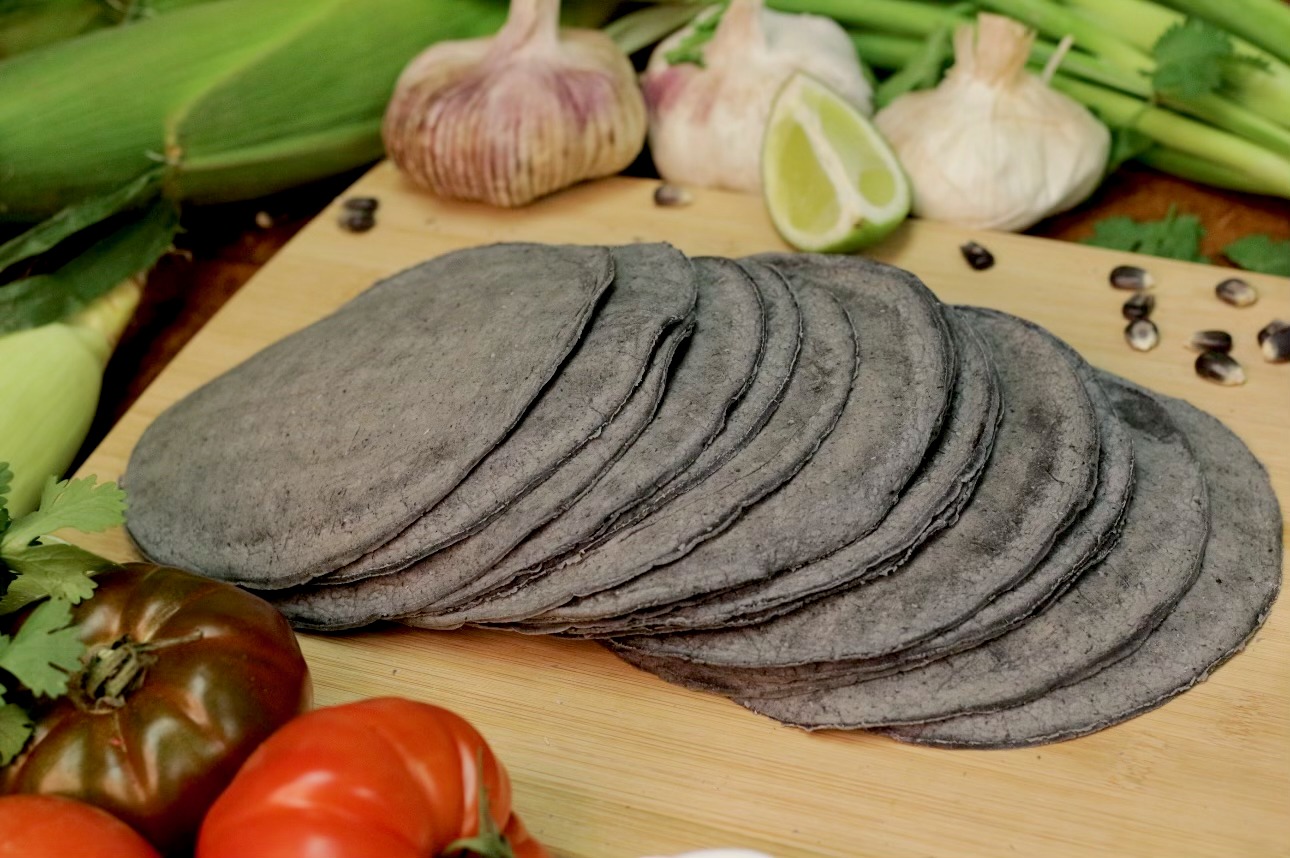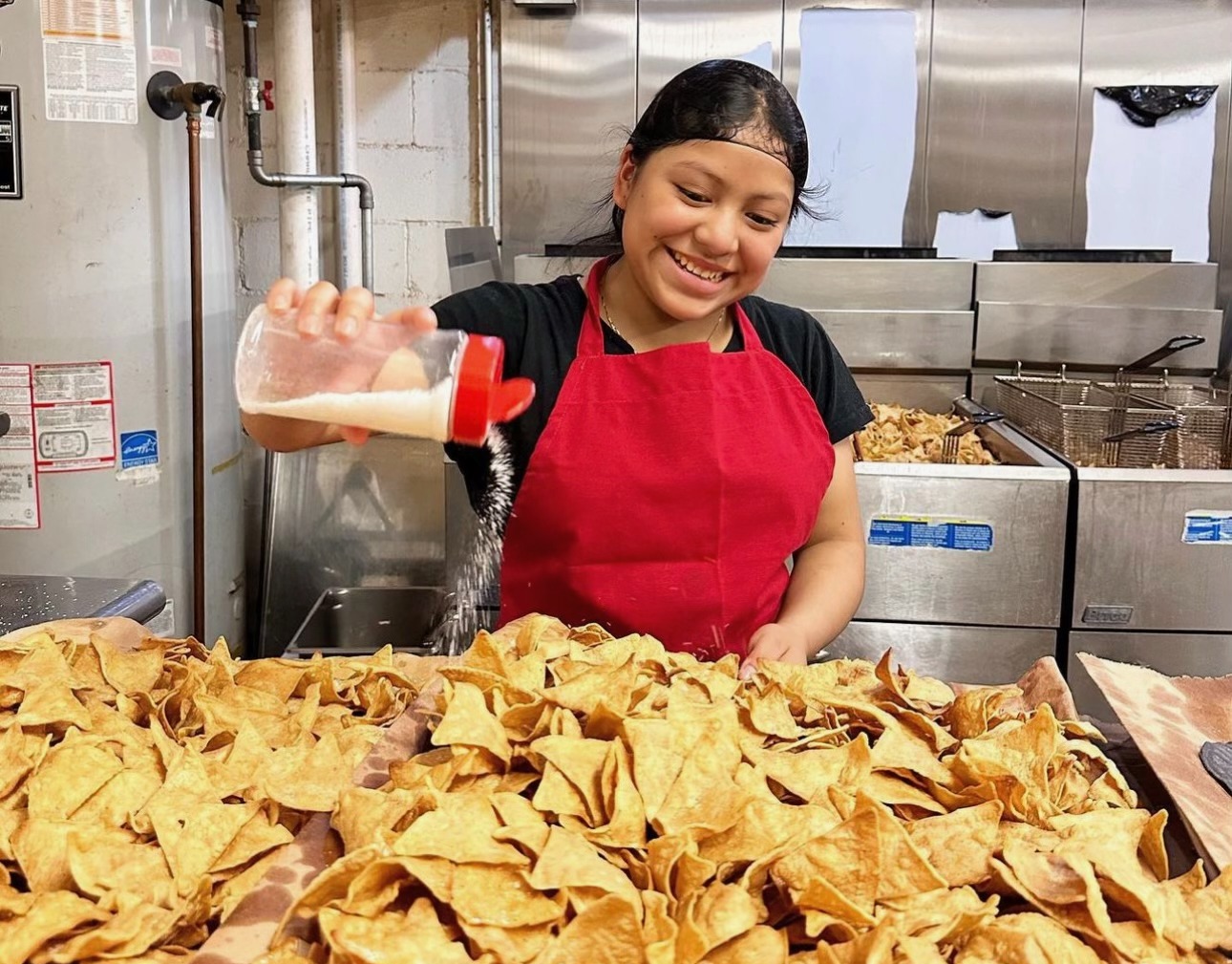[ad_1]
In Mexico, you can count on traditional tortillas on Cinco de Mayo—or any day of the year. In the U.S., authentic and nutritious tortillas are hard to find in many parts of the country.
But in North Jersey’s Woodland Park, Tortilleria Nixtamal (pronounced neesh-tah-mahl) produces all-natural, flavorful tortillas made the traditional way that the Aztecs did.
Below, co-founder Shauna Page chats about why her tortillas are superior.
What got you interested in tortillas?
They’re a pillar of Mexico’s fantastic cuisine. Everything tastes better on a genuine tortilla! I’ve always been a connoisseur of cultural connections, especially with Mexico. I grew up in Sonora in Northern California, which is tucked into a valley along California’s Mother Lode. Sonora was founded as a mid-1800s Gold Rush settlement of Mexican miners who came from the [Mexican] state of Sonora.
I studied agricultural economics in college and got a master’s in applied economics. Then I was a management consultant, hired by companies to smooth out their problems. I started to really want my own business. In the aughts my boyfriend was from Mexico. We realized that no one [in the U.S.] was making tortillas in the traditional way. We knew that the true taste of Aztec tortillas would win people over. Together we opened a Mexican restaurant in the Queens neighborhood of Corona, which has lots of Mexican immigrants. Our menu spotlighted authentic tortillas that we made on-premises.
I take it the restaurant did well.
It was a big hit. We called it Nixtamal, which is the Aztec word, in their Nahuatl language, for corn kernels ground into flour. The restaurant got a lot of word-of-mouth and press attention, and our tortilla-making grew. Chefs and diners fell in love with our healthy, natural tortillas with a real corn taste. My relationship didn’t go the distance, but the business took off. With a new business partner, I moved the operation to Woodland Park in 2020.

Tortilleria Nixtamal’s tortillas contain non-GMO corn, New Jersey water and salt—nothing else. Photo courtesy of Mimi Diehl
What’s involved in making authentic tortillas?
First of all, we use natural, non-GMO corn and nothing but corn—plus salt and New Jersey water. White corn is native to Mexico and Central America, but has adapted to North America. Ours is grown on a sustainable family farm in Illinois and shipped to Woodland Park weekly. Our tortillas contain no additives or preservatives of any kind. They’ll keep for a week or two in your fridge. The fact is, preservatives diminish corn’s flavor and its nutritional value. Our 100 percent natural tortillas are full of corn flavor.
Do you follow Aztec procedure in any other way?
Dried corn kernels are hard as rock, so the Aztecs softened them in water and ground them into masa—corn flour—on another rock: limestone. They called the result nixtamal. Limestone is a sedimentary rock with the mineral calcite in it, plus shells and fossils. Grinding kernels on limestone creates calcium hydroxide, which tenderizes it and enhances the corn’s flavor, vitamins and fiber content. The process is called nixtamalization. At Tortilleria Nixtamal, we still work our corn on limestone. Ours is trucked in from a quarry in Mississippi.
What shortcuts do non-nixtamalized tortilla makers take?
Their tortillas and chips look and taste very different from ours. They use factory-farmed GMO corn, which is turned into powdery flour that has no texture. So their tortillas are like sheets; ours are bumpy. Their calcium hydroxide is an additive, not contributed by limestone. They’re adding preservatives, which make the tortilla last longer, but diminish its flavor and nutrition. They add guar gum to make the tortilla flexible, but this stuff is a known digestive irritant. Should I go on?
No thanks. So how many tortillas do you bake daily?
We typically produce 40,000 to 60,000 corn tortillas each day of the work week. Our employees have regular weekends, unusual in baking.

Chips are available in addition to soft tortillas. Photo courtesy of Mimi Diehl
What do you make besides tortillas?
In addition to our basic, six-inch white corn tortillas, we make blue corn tortillas, whose corn appears blue or purple on the stalk. We also produce a wheat-based tortilla, coincidentally called the Sonoran style, which is thin, soft and made with palm oil. And, of course, we make nacho chips. You can’t sell chips without salsa, so we make our own salsas, in red and green. And we bag and sell our masa corn flour in white, blue and Mexican [varieties].
Where can people buy your products?
Our entire product line is available for ordering online. We also have a retail window at our factory at 86 Lackawanna Avenue in Woodland Park. It’s open weekdays till 5 pm. No shipping charge.
Are your tortillas served in any New Jersey restaurants?
Quite a few! Central Taqueria in Morristown, Los Compadres in Fort Lee, Rosa Mexicana in Hackensack, the Spring Café in Tenafly, Stone & Rail in Glen Rock, Taco Bar in Closter, Taco Drive in Jersey City, Tacowala in Somerville, Uno Mas in Allendale.
Calcite, the mineral in limestone, is a big deal for believers in crystal energy. A beautiful, transparent gray crystal, it’s said to promote self-awareness and a plan for the future. Believers also keep them around for weight loss. What do you think of that?
The Aztecs knew a lot. Limestone was certainly a factor in my business plan. If tortillas somehow contribute to weight loss, I’ll have a new market on my hands.
No one knows New Jersey like we do. Sign up for one of our free newsletters here. Want a print magazine mailed to you? Purchase an issue from our online store.
[ad_2]
Source_link


